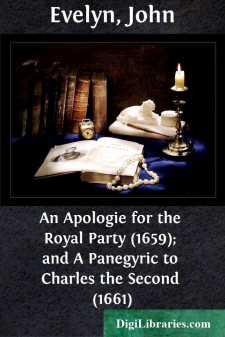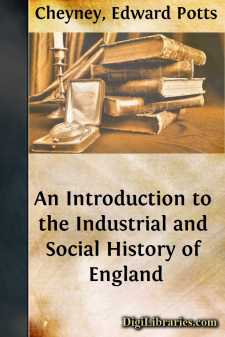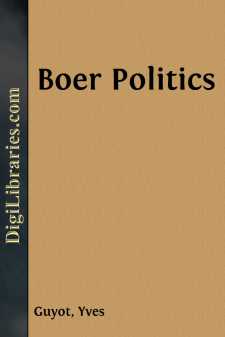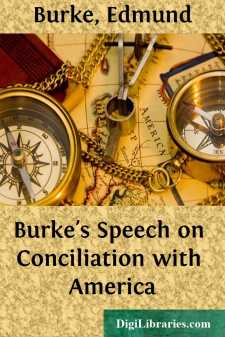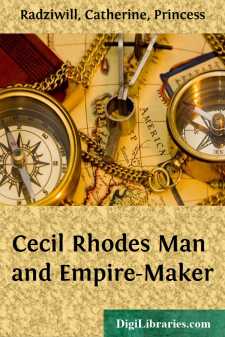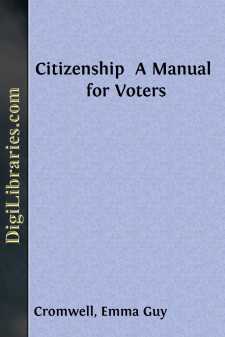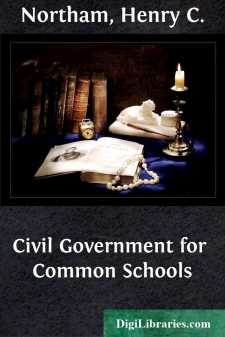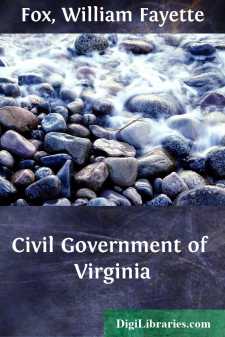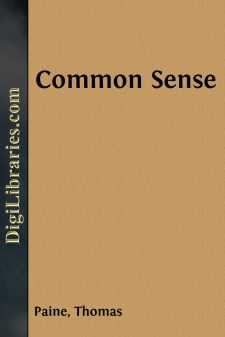Political Science
Political Science Books
Sort by:
by:
John Evelyn
INTRODUCTION On October 24, 1659, a quarto pamphlet was published in London with the following title: “The Army’s Plea for Their present Practice: tendered to the consideration of all ingenuous and impartial men. Printed and published by special command. London, Printed by Henry Hills, Printer to the Army, dwelling in Aldersgate Street next door to the Peacock. 1659”. Three days afterwards, on...
more...
GROWTH OF THE NATION To the Middle of the Fourteenth Century —The British Isles lie northwest of the Continent of Europe. They are separated from it by the Channel and the North Sea, at the narrowest only twenty miles wide, and at the broadest not more than three hundred. The greatest length of England from north to south is three hundred and sixty-five miles, and its greatest breadth some two...
more...
by:
Daniel Defoe
INTRODUCTION Atalantis Major is a thinly veiled allegory describing the November 1710 election of the representative Scottish peers. The circumstances which surrounded this election were produced by the outcome of the previous month's General Election—a landslide for the Tories—and, to understand these circumstances, the impact of that Tory victory must be seen within the context of the...
more...
by:
Yves Guyot
INTRODUCTION. A word in explanation of this English edition is perhaps not unnecessary. It will be remembered that the arguments in the following pages appeared originally in the columns of Le Siècle, and from the correspondence between M. Yves Guyot and Dr. Kuyper and M. Brunetière (Appendix B), the reader will understand how the publication of Le Siècle articles in pamphlet form arose. In the...
more...
by:
Edmund Burke
POLITICAL SITUATION In 1651 originated the policy which caused the American Revolution. That policy was one of taxation, indirect, it is true, but none the less taxation. The first Navigation Act required that colonial exports should be shipped to England in American or English vessels. This was followed by a long series of acts, regulating and restricting the American trade. Colonists were not allowed...
more...
CHAPTER I. The conquest of South Africa is one of the most curious episodes in English history. Begun through purely mercenary motives, it yet acquired a character of grandeur which, as time went on, divested it of all sordid and unworthy suspicions. South Africa has certainly been the land of adventurers, and many of them found there either fame or disgrace, unheard-of riches or the most abject...
more...
Introduction Realizing the need of a manual on citizenship for the new voters in Kentucky, the author has endeavored to compile such information on the government and its workings, as will be of use to all voters, especially the ones just entering political life. A strong appeal is made to the women voters of our nation to prepare themselves for public life by keeping in touch with the issues of the...
more...
by:
Henry C. Northam
I.—INTRODUCTION. Officers are elected to administer the government for I. The United State II. Each StateIII. Counties. IV. Cities V. Towns VI. Districts The following are names given to some of the different kinds of districts in the State of N. York I. Road, School and Election Districts. II. School Commissioner Districts.III. Assembly districts IV. Senatorial districts V....
more...
The word GOVERNMENT means guidance or direction or management. It means also the person or persons who rule or control any establishment or institution. Wherever any number of people live together in one house, or one town, or city, or country, there must be government of some kind. In the family the parents are the government. They guide and manage the affairs of the house. They give orders to their...
more...
by:
Thomas Paine
SOME writers have so confounded society with government, as to leave little or no distinction between them; whereas they are not only different, but have different origins. Society is produced by our wants, and government by wickedness; the former promotes our happiness POSITIVELY by uniting our affections, the latter NEGATIVELY by restraining our vices. The one encourages intercourse, the other...
more...


